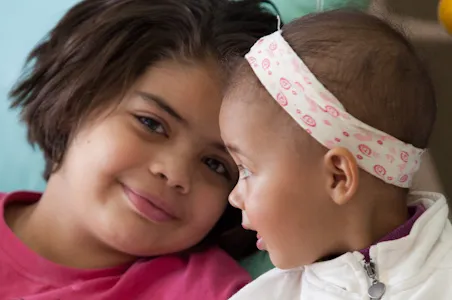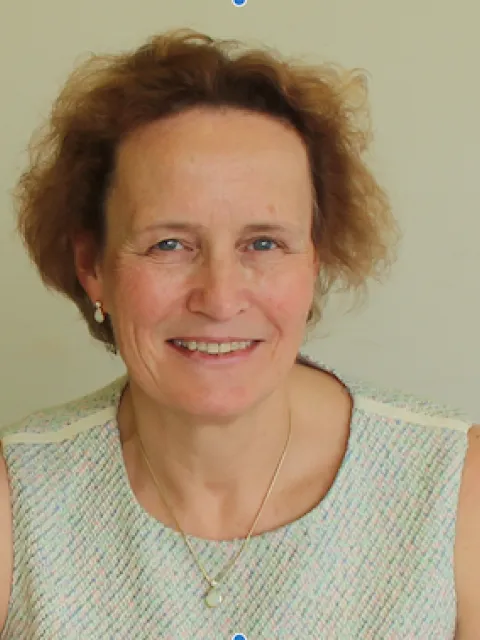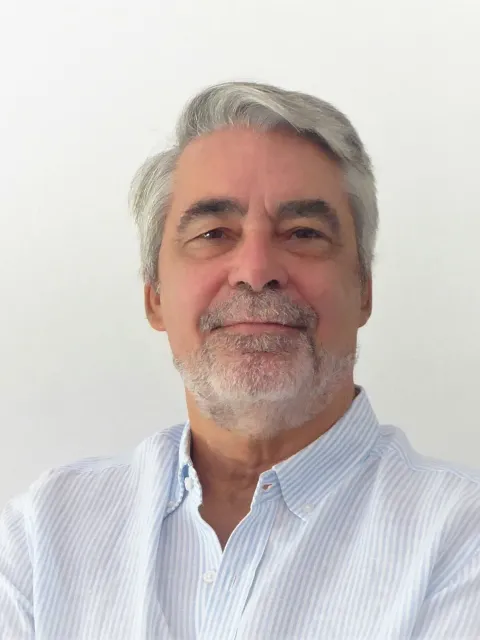Keeping the commitment to the youngest cancer patients during COVID-19

International Childhood Cancer Day: Challenges, resilience, and keeping the commitment to the youngest cancer patients worldwide during the COVID-19 pandemic
On behalf of the International Society of Paediatric Oncology (SIOP) and Childhood Cancer International (CCI) – the organisations of childhood cancer professionals and parents worldwide – we continue the momentum created by UICC to highlight the impact of the COVID-19 pandemic and the ways forward with the focus on the vulnerable group that we serve and represent.
Childhood cancers are rare in absolute numbers and different from cancers in adults. Their aggregate burden is major across all global regions and childhood cancers require distinct approaches throughout the patient pathway. The international paediatric cancer community has been working tirelessly to improve cure rates over the past 50 years and achieved important gains in some regions. Still, access to appropriate diagnosis, treatment and care varies widely across the globe, where there are large disparities in survival: from around 80% in most high-income countries to less than 30% in other settings.
In 2018, the World Health Organization (WHO) launched the Global Initiative for Childhood Cancer with the aim to achieve a cure rate of at least 60% worldwide and to alleviate suffering for all. SIOP and CCI are honoured to be part of this breakthrough initiative, which is ideally positioned to focus global attention and resources on childhood cancers and offers great hope.
Throughout 2020, the paediatric cancer field has been no exception to the serious impact of the COVID-19 pandemic. Since the beginning, SIOP, CCI and partners in the field provided a rapid response to guide childhood cancer care in this emergency context [1], [2], [3]. A clear message emerged from multi-stakeholder concertation: it is imperative that the treatment of children with cancer should continue in an organised and timely manner with adaptations to ensure the safety of patients and healthcare professionals.
In addition, our organisations have been monitoring the impact of the virus spread on childhood cancer patients and paediatric oncology services worldwide. The global COVID-19 and childhood cancer registry is a landmark effort set up by St Jude in cooperation with SIOP[4]. The registry collects data on childhood cancer patients with COVID-19 from across global regions. It is a unique resource for researchers and capable to provide up-to-date evidence for health planners and decision-makers worldwide.
Based on the evolving scenario, the preliminary findings from the registry point to greater COVID-19 symptom severity in specific childhood cancer subgroups rather than across all subtypes of the disease. Overall, the majority of childhood cancer patients recover from the infection without the need to administer COVID-19-directed therapies.
The registry studies uncovered areas of substantial concern linked to healthcare delivery. Thus, it is clear that treatment interruption is a major impact of COVID-19 on childhood cancer services. Whereas quality multi-modal treatment can save children’s lives if administered timely, random deviations from established protocols can substantially and dramatically compromise outcomes. Another critical dimension is delayed diagnosis. Fewer cases than expected have been observed in a variety of settings. This is likely attributable to a combination of travel restrictions and the reluctance on the part of patients or their parents to seek medical attention for fear of being exposed to the virus. Perceived lack of appropriate safeguards and reassurance from health systems may also play a role. As a result, late presentation of childhood cancer cases is widely anticipated. Treatment at a more advanced stage of disease can lead to sub-optimal outcomes, with dramatic implications for these children.
In 2020, St Jude in cooperation with SIOP conducted a global survey of healthcare institutions providing childhood cancer care. The survey found that the pandemic significantly curtailed the capacity for childhood cancer diagnosis, treatment and care delivery. The impact was felt most strongly in low- and middle-income countries (LMICs). Most surveyed institutions indicated that the impact of the pandemic on paediatric cancer care was “significant”, and several reported having to stop services completely. Patient support, treatment provision, and clinical staff were among the most affected areas. Some institutions attributed severe complications and even deaths in children with cancer as a direct result of the disruptions created by the pandemic.
CCI conducted a dedicated survey of parent organisations on the impact of COVID-19, with similarly worrying results. Echoing findings in health professionals, parents are gravely concerned about delays in treatment, treatment abandonment, and late diagnoses. Many parents reported that access to multi-modal treatment, medicines and palliative care was compromised and reported concrete examples of pandemic-related barriers to potentially life-saving care in their countries.
Another detrimental effect on parent and patient organisations was at the financial level. These entities play a pivotal role in advocacy and service provision, but their revenues declined substantially following the pandemic. At the same time, the demand for support, including housing and transportation, increased considerably as more families found themselves in dire economic circumstances. At a time when healthcare systems are challenged to ensure continuity of standard care, the problem of access to potentially life-saving treatment is compounded when civil society lacks the capacity to provide auxiliary support.
Looking to the future, we have reasons for hope. Thus, the SIOP and St Jude survey found that paediatric oncology teams showed a remarkable capacity for adaptation and resilience, learning valuable lessons that can be carried through the pandemic and beyond. To ensure continuity of treatment, team flexibility coupled with frequent and transparent communication with all stakeholders emerged as a key factor. Examples include implementation of stringent hygiene practices in clinics, distance healthcare consultations where possible, and sharing medical resources among institutions. Importantly, families are resolute to undertake collaborative efforts to access treatment while showing outstanding empathy and understanding of the challenges faced. Dialogue with the Ministries of Health remains central as is the continued involvement of civil society organisations and academia.
Vaccination is another promise as the childhood cancer community awaits clinical evidence of its utilisation in young children. Until then, we highlight the importance of cross-talk and coordination between COVID-19 response strategies and childhood cancer care at all governance levels and involving all stakeholders, in particular parents and healthcare professionals. We cannot afford to lose the gains and halt life-saving progress for children and adolescents with cancer. As part of the WHO GICC effort, we remain committed and united to fulfil the promise to the children of the world.
________________________________________________________
[1] Bouffet E, Challinor J, Sullivan M, Biondi A, Rodriguez‐Galindo C, and Pritchard‐Jones K (2020) "Early advice on managing children with cancer during the COVID‐19 pandemic and a call for sharing experiences", Pediatric Blood & Cancer 67(7), e28327.
[2] Sullivan M, Bouffet E, Rodriguez‐Galindo C, Luna‐Fineman S, Khan MS, Kearns P, et al (2020) The COVID‐19 pandemic: A rapid global response for children with cancer from SIOP, COG, SIOP‐E, SIOP‐PODC, IPSO, PROS, CCI, and St Jude Global. Pediatr Blood Cancer 67(7), e28409.
[3] Graetz D, et al. "Global Impact of the COVID-19 Pandemic on Paediatric Cancer Care: A Cross- Sectional Study", Lancet Child & Adolescent Health. In press.
Last update
Monday 12 December 2022Share this page



